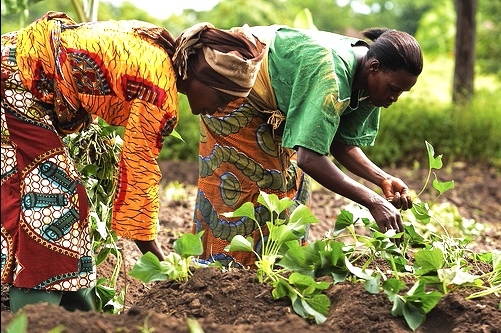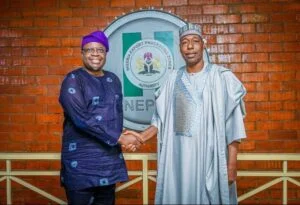Some agriculture experts have called on the Federal Government to subsidise the cost of agro-inputs in order to improve food security in the country.
The experts made the call in separate interviews with the News Agency of Nigeria (NAN) on Wednesday in Lagos in commemoration of the World Food Day.
NAN reports that the World Food Day is an international day celebrated every year on October 16 to commemorate the date of the founding of the United Nations Food and Agriculture Organisation in 1945.
The aim of the day is to promote global awareness and action for those who suffer from hunger, and to highlight the need to ensure healthy diets for all.
An agriculture consultant, Mr Omotunde Banjoko, called on the government to subsidise agro-inputs to help boost food security and regulate food prices.
“So, as we celebrate the World Food Day, in order for us to overcome the food security challenges we are having, I think the government should start subsidising the input that goes into food cultivation.
“Fertilisers, land acquisition, chemicals, herbicides, and all inputs that goes directly into the cost of cultivation should be highly subsidised.
“This is so that the cost of the final product can be affordable and the burdens would have been taken off the consumers,” the expert said.
Banjoko noted that the government food policy would in no way solve the country’s food security issues.
“These palliatives being distributed is not going to be the solution, as they are being diverted.
“However, we must identify the real farmers, we must have a good database for farmers like we had during the time of President Jonathan and then make sure this subsidy is going directly to the farmers’ inputs.
“Then we can achieve food surplus and a sustainable food security. We need to also improve the distribution systems, reduce our post-harvest losses, and upscale our farming technology,” Banjoko said.
He urged the adoption of technology to reduce post-harvest losses and increase food production.
“We have to start embracing technology. Hoes and cutlass alone can no longer do the job, we must start embracing technology in our processing and in our production.
“The use of tractors so farmers can cultivate not just one or two hectares. Farmers can do larger scales of five, 10, 20 hectares, even as smallholder farmers.
“Also, the use of drones in spraying, the use of automated machines, giving details, data, geo-positioning, and geo-mapping of our farms, so we have to then access to mobile data in the farming communities.
“The communication between where the goods are produced and where they are needed has to be improved. So, that price can be regulated, we only need to start prioritising the issue of the commodity board.
“The President has been talking about that for some time but nothing has been done, so we need now than ever to prioritise the commodity boards, that is the only time our food prices can be regulated,” he said.
On his part, Mr Akin Alabi, agriculture expert and co-founder Corporate Farmers International, called for holistic collaboration between government and private sector to build the nation’s food security.
“There is a need for an holistic collaboration between government and private sector to build the nation’s food security system.
“There is also the need for the Federal Government to create an enabling environment and proper policy creation that will encourage private sector investments into agribusiness.
“There is also the need for us to create a women-youth inclusive policy programmes that will encourage more jobs within the agricultural ecosystem.
“There is a need to introduce technology into the agric. system. With this, it is possible for us as a nation to attain food security and face our challenges.
“Security is a role we cannot underplay. It is a role that is needed so that farmers, more than farmers, can go back to farm,” Alabi said.
He also called for investment in the entire agro-value chain for improved productivity of the sector.
“If you look at the end-to-end of any agricultural sector, that is from plants or from farm-to-table, it is all chained together. That means every value chain player has a role from one chain to another.
“These chains start from production, processing, distribution, marketing, logistics, quality assurance, technology and extension service.
“All these chains are tied together and there is need for us to ensure that we are able to drive in direct investment in each.
“For example, we need to direct some level of investment into production, investment into processing, transportation, quality assurance, distribution, marketing.
“Now, where we can get these things right, it helps us attain some level of proper food security and it helps to prevent post harvest loss, which today affects the final outcome of an agricultural production,” the expert said. (NAN)





